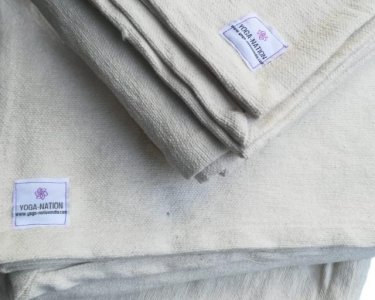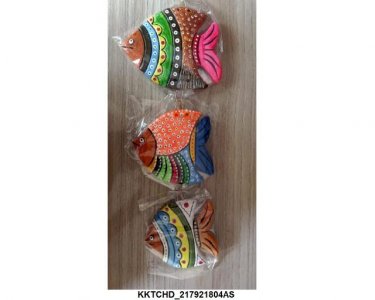Search in "Fiji" on Export Portal
Active Filters
-
Country:
- Clear all
New Search
Couldn't find the product you want?
Fill out this form to request the product.
Exports

The economy of Fiji has highly increased through the last years. With a population of 880 000, Fiji is the 149th largest export economy in the world. Fiji remains a developing country with a large subsistence agriculture sector.
Agriculture accounts for 18% of gross domestic product, although it employed some 70% of the workforce as of 2001. Sugar exports and the growing tourist industry are the major sources of foreign exchange. Sugar cane processing makes up one-third of industrial activity. Coconuts, ginger, and copra are also significant.
Fiji's sugar remains a significant industry and a major export. The sugar industry reforms since 2010 have improved productivity and returns. The industry faces the complete withdrawal of European Union preferential prices by 2017.
The main exports of Fiji are cane sugar, bottled water, wood, gold, bread and manioc.
Main export partners of Fiji are its closest neighbours: Australia and New Zealand. Other trading partners are United Kingdom, United States, Singapore, Tonga, Japan, Vanatu, Western Samoa and the Cook Islands. The main industry of Fiji is tourism.
Customs requirements of Fiji
Fiji Customs Contact Information
Website: http://www.frca.org.fj/
Email: info@frca.org.fj
Address: Revenue & Customs Services Complex, Lot 1 Corner of Queen Elizabeth Drive & Ratu Sukuna Road, Nasese, Suva.
Telephone:+6793243000
Fiji is an island country situated in Melanesia (South Pacific Ocean). Its closest neighbours are Vanuatu, New Caledonia, New Zealand's Kermadec Islands, Tonga, Samoas and France's Wallis and Futuna and Tuvalu. It is a member of Oceania Customs Organisation, World Trade Organization, Alliance of Small Island States, International Monetary Fund and World Customs Organization. International trade represents a considerable sharea of GDP for the country. Trade is much controlled by the government, but customs duties in the country are relatively low.
Fiji Export Import Requirements
When you bring goods into Fiji you may need to pay Customs duty and other charges on your arrival. What you pay will depend on a number of factors such as: whether the goods are for your own personal use; whether they are covered by a concession or duty-free allowance; whether they are for commercial use. When taking goods out of Fiji, your goods may incur a fee if they require Customs inspection.
Tariffs and non-tariff barriers
Tariff
Single-column tariffs are based on the Harmonised System. Fiscal duties are mainly ad valorem (per cent) assessed on a cost, insurance and freight (CIF) value. Units used in assessing specific duties are levied according to product. Specific rates may be slightly altered due to a regulation requiring metric quantities.
Non-tariff barriers
Import control is exercised through adherence to regulations covering the following five classes of restricted goods:
- Absolute prohibitions
- Prohibited unless specified conditions are complied with
- Prohibited unless covered by an import licence issued by the Minister of Finance
- Prohibited unless covered by an import licence issued by the Permanent Secretary for Trade and Commerce
- Prohibited from importation under other laws
Foreign exchange is administered by the Reserve Bank of Fiji. Commercial banks have fully delegated authority to screen and approve overseas remittances of all current payments.
Price controls which are overseen by the Commerce Commission may apply to some imported goods restricted import and retail mark up and margins.
Product certification, labelling and packaging
Labelling and marking
Outer containers should bear consignee's mark and port mark and should also be numbered (to accord with packing list) unless their contents can be otherwise readily identified.
Packaging
Pre-packing of grass, straw, chaff and sacking is prohibited.
Goods should be securely packed, having due regard to the nature of the goods, means of transport and likely climatic conditions during transit and delivery.
Special certificates
Phytosanitary certificates, in addition to the permits referred to in 'Public health requirements' must accompany imported plants. An approved authority in the country of origin must issue the prescribed health certificates.
Sheep and goats are permitted entry, but must be accompanied by a certificate issued by a government veterinarian indicating freedom from disease.
Fruit imports must be accompanied by a quarantine certificate attesting that they have been grown in an area free from fruit fly infestation.
The Ministry of Health requires a certificate of fumigation for used clothing.
Imports of brandy, whisky and rum must be certified by the Collector of Customs at port of shipment as having been matured by storage in wood for not less than three years. A certificate of a Collector of Customs or a public authority at the port of shipment will be accepted as adequate proof. Special standards of strength are prescribed for alcoholic beverages.
Documentary requirements
Fax signatures are not permitted on original documents. As the time taken for cargo to reach Fiji from Eastern Australia is relatively short, it is essential that documents necessary for clearing the goods through customs be dispatched in time to affect prompt clearance. It is suggested that delays in clearance can be minimised by:
- Posting a copy of the invoice directly to the customer together with name of ship and intended date of departure (this enables the customer to carry out customs formalities with a bank guarantee in lieu of the bill of lading).-
- Cabling or telexing advice of shipment with name of ship, goods dispatched and FOB or FOW (Incoterms 1990) value.
Commercial invoice
No prescribed form, however an original and one copy is required by Fiji Customs. The importer may request additional copies, and must include the following details:
- Date and number of the invoice
- Name and address of the seller/consignor of goods
- Name and address of the buyer/consignee
- Name of the ship or flight number if known as the time the invoice is made out
- Country of origin of the goods
- Description of the goods, quantity, number of packages, marks and numbers of each package, the selling price and the terms of delivery (ex-factory, FOB, CIF etc. (Incoterms 1990)
Bill of lading/airway bill
No special requirements. To Order bills are acceptable.
Packing list
Packing lists are not compulsory, but facilitate clearance, required for all full container loads of cargo. Optional for loose air-cargo shipments.
Public health requirements
Importation of live animals or animal products listed below, all require an import permit:
- fresh/chilled/frozen and processed meats/poultry
- canned meat/poultry
- all dairy products
- semen
- feathers
- hides
- animal by-products (eg. tallow, biologicals)
An initial application for a permit must be made in writing and, if the application is approved, an Import Permit will then be issued - usually processed within two weeks of receipt. However, if an application is made for a product which has never been imported into Fiji, a Pest-Risk-Analysis will have to be undertaken, which takes a minimum time of 12 months.
Fruit and vegetables must be accompanied by an import licence obtained from the Chief Quarantine Officer, Ministry of Agriculture Fisheries & Forest, and must comply with specified health regulations requiring methyl bromide fumigation (see also 'Special certificates').
Agricultural seeds are allocated an import permit only after a sample representative of the batch proposed for import has been subject to testing by the Ministry of Agriculture, Fisheries & Forestry.
Pure food ordinances govern the use of colours and preservatives, and the standard, composition and marking of food products.
Importation of the following drugs and their salts is restricted to the Government Pharmacist: morphine, pethidine, methadone, phenadoxone, tincture of opium.
Pharmacopoeia is the legal reference for the standard quality and composition of all drugs.
Sources:
http://www.frca.org.fj/customs-charges-and-duties/
http://www.frca.org.fj/motor-vehicles/
http://www.frca.org.fj/customs-charges-and-duties/#sthash.Ig63VGyn.dpuf





























